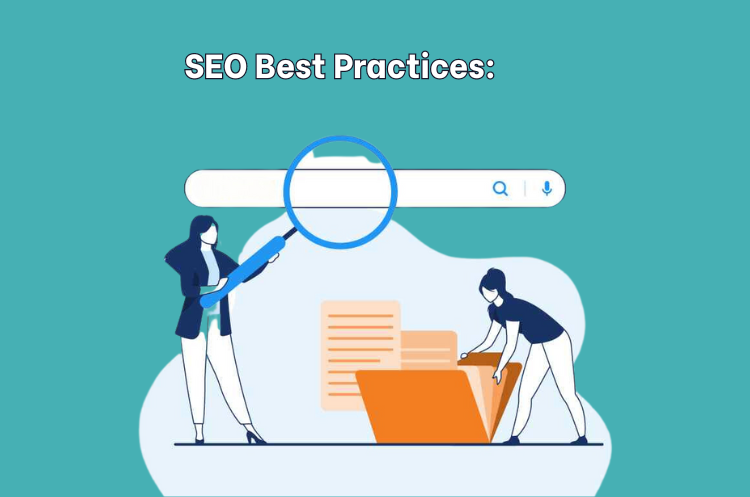
Online Reputation Management (ORM) Strategies for 2023
In today’s rapidly changing digital landscape, it’s more important than ever to maintain a positive online reputation. With the internet’s constant growth and the widespread influence of social media, it’s vital to take control of your online presence. In this guide, we’ll explore online reputation management strategies to safeguard your online image effectively in 2023.
Understanding Online Reputation Management (ORM)
Online Reputation Management, or ORM, is the ongoing process of influencing and managing how a brand, business, or individual is perceived online. ORM involves using strategies and techniques through various online channels to monitor and address factors that can affect your online image, including customer feedback. The primary goal is to enhance your brand’s reputation in search engine results, social media, review websites, and other online platforms.
Whether you’re a business owner, a professional, a celebrity, a freelancer, a student, an entrepreneur, or even retired, it’s crucial to actively manage your online reputation. In a world with over 4.2 billion internet users and 3.4 billion active social media users, there’s an abundance of online information. Shaping your online presence positively is imperative to control the narrative.
How Online Reputation Management Works
ORM is about proactively monitoring and shaping your brand’s reputation across the internet. The goal is to ensure that your business is represented accurately, leaving potential customers with a positive impression. ORM encompasses various channels, organized within the PESO model:
Paid Media: These are paid marketing efforts where you control the message, content, and target audience. Paid media is used to promote content, generate earned media, and drive traffic to owned media.
Owned Media: These are digital marketing channels you have complete control over, such as websites, blogs, and social media profiles. Paid and earned media can enhance owned media.
Earned Media: Earned media includes publicity or exposure gained from sources other than paid advertising. This includes mentions, shares, reviews, and other forms of engagement on external websites and social media platforms.
Effective Online Reputation Management Strategies for 2023
In 2023, it’s essential to be proactive in fortifying and safeguarding your online reputation instead of reacting to a reputation crisis. To create a solid foundation, understand the online landscape around your brand and establish a tailored ORM strategy. Here are reputation management best practices to get you started:
Website Strategies for Reputation Management:
Register a Domain Name: Secure your name or business name’s web domain, even if you’re not planning to build a website right away. It’s a valuable asset for controlling your online identity.
Develop a Great User Experience: Prioritize user experience (UX) when creating website content. Content should be engaging, informative, and aligned with Google’s E-A-T guidelines (Expertise, Authoritativeness, Trustworthiness).
Optimize Images for Web and Performance: High-quality images enhance the value and appeal of your sites and profiles. Avoid using images from Google Image results to avoid copyright issues.
Add Testimonials and Reviews: Include testimonials and reviews on your website to build credibility and enhance trust.
Add a Contact Form: Incorporate a contact form to show approachability and facilitate connections with your audience.
SEO Best Practices:

Find Keywords Using Google Autocomplete & Searches Related: Use Google Autocomplete and related searches to identify keywords and topics related to your content and brand.
Choosing Relevant Keywords for SEO: Focus on a few specific keywords and topics closely tied to your brand. Diversified content can confuse both readers and search engines.
Don’t Over-Google Yourself: Excessive self-searching can disrupt search engine crawlers. Use tools like Google Alerts or seek help from a reputation management professional.
Content Strategies:
Develop a Content Marketing Plan: Analyze existing online content when crafting your content marketing strategy. Understand how people perceive you when they search for your name or related terms.
Diversify Your Content Strategy: Avoid duplicating content across multiple platforms. Present unique and engaging content on each site, blog, or profile.
Do Not Over-Post Content Online: Creating excessive content in a short time can appear unnatural to search engines and may lead to penalties.
Blog Consistently: Maintain a regular blogging schedule to keep your audience engaged. Posting one to two blogs per week or month is typically sufficient to maintain reader interest.
Find Guest Blogging Opportunities: Explore opportunities to contribute as a guest blogger on high-authority sites. Guest blogging helps expand your reach and build backlinks.
Social Media Strategies:
Keep Your Social Media Usernames Consistent: Maintain uniform usernames across various social media platforms to create a cohesive online identity. Consistency helps Google and its users recognize you as a single entity.
Refrain from Posting Too Much on Social Media: While social media is essential for engagement, overactivity can lead to missteps or misunderstandings. Practice restraint when engaging in online discussions.
News & Press:
Avoid Fake News: The spread of fake news remains a significant concern. Verify sources before sharing or publishing content, as maintaining trust is crucial for a strong online reputation.
Create Your Own Press Releases: Use press releases to announce newsworthy information or developments. Publishing press releases on reputable platforms can enhance your online presence and authority.
Branding:
Build Brand Identity: Establish a unique brand voice that aligns with your goals, whether it’s seeking employment, business growth, relationship-building, or industry relevance.
Online Review Sites:
Create Listings for Review Websites: Ensure your business has listings on review websites like Google My Business, Yelp, and social media platforms. Listings are crucial for customer reviews.
Encourage Users to Leave Positive Reviews: Encourage satisfied customers to leave positive reviews. Positive reviews help improve your online reputation.
Respond to Negative Reviews: Address negative reviews professionally and promptly. Personalized responses can rectify issues and rebuild trust.
Other Tips:
Participate in Professional Networking: Engage in various networking activities, such as certifications, events, presentations, interviews, and sponsorships to increase authority and credibility.
Be Proactive and Patient with Your Online Reputation: Online reputation management is a long-term endeavor. Progress may vary based on various factors, so set realistic expectations and work diligently.
Consider Working With a Reputation Management Company:
If you find online reputation management challenging, consider partnering with a reputable company like “Build Brand Better.” we offer comprehensive reputation management services, including content optimization, social media management, and tailored strategies to meet individual needs. With a team of seasoned SEO and digital marketing experts, “Build Brand Better” guarantees the removal and suppression of negative content, ensuring a complete restoration of your online reputation.
FAQ
What is Online Reputation Management (ORM), and why is it important?
Answer: Online Reputation Management (ORM) is the continuous process of influencing and managing how a brand, business, or individual is perceived online. It involves using strategies and techniques to monitor and address factors that can impact your online image, including customer feedback. ORM is essential because it helps ensure that your online presence accurately represents your brand and leaves a positive impression on potential customers. With the vast number of internet users and social media’s influence, a positive online reputation is crucial.
How can ORM help my business or personal brand?
Answer: ORM can help your business or personal brand in several ways. It can enhance your online visibility, build trust with your audience, improve your credibility, and attract more customers or opportunities. By actively managing your online reputation, you can control the narrative and ensure that your digital presence aligns with your goals and values.
How can I register a domain name for my brand, and why is it important?
Answer: You can register a domain name through domain registration services or registrars. Securing a domain name for your brand is important because it provides you with control over your online identity. Even if you’re not planning to build a website immediately, registering the domain helps protect your brand from misuse by others and ensures you have the option to create a website in the future.
What is Google’s E-A-T guideline, and why is it crucial for my website’s content?
Answer: Google’s E-A-T guideline stands for “Expertise, Authoritativeness, Trustworthiness.” It’s crucial for your website’s content because Google uses these criteria to evaluate the quality and trustworthiness of your information. By adhering to these guidelines, you can improve your website’s credibility and search engine rankings, ultimately strengthening your online reputation.
How can I deal with negative online reviews effectively?
Answer: To address negative online reviews effectively, respond professionally and promptly. Acknowledge the customer’s concerns, offer a solution or an apology, and strive to rectify the issue. Personalized responses demonstrate your commitment to customer satisfaction and can help rebuild trust. Encourage satisfied customers to leave positive reviews to counterbalance negative feedback.
For more Blogs:- www.buildbrandbetter.io/blog/
